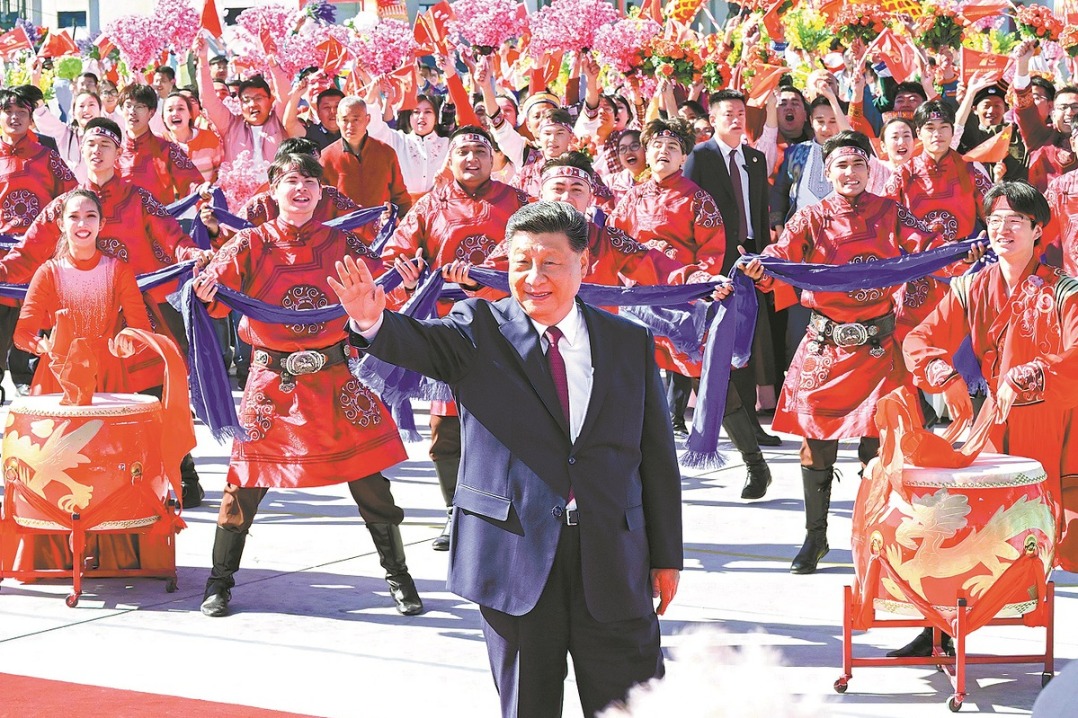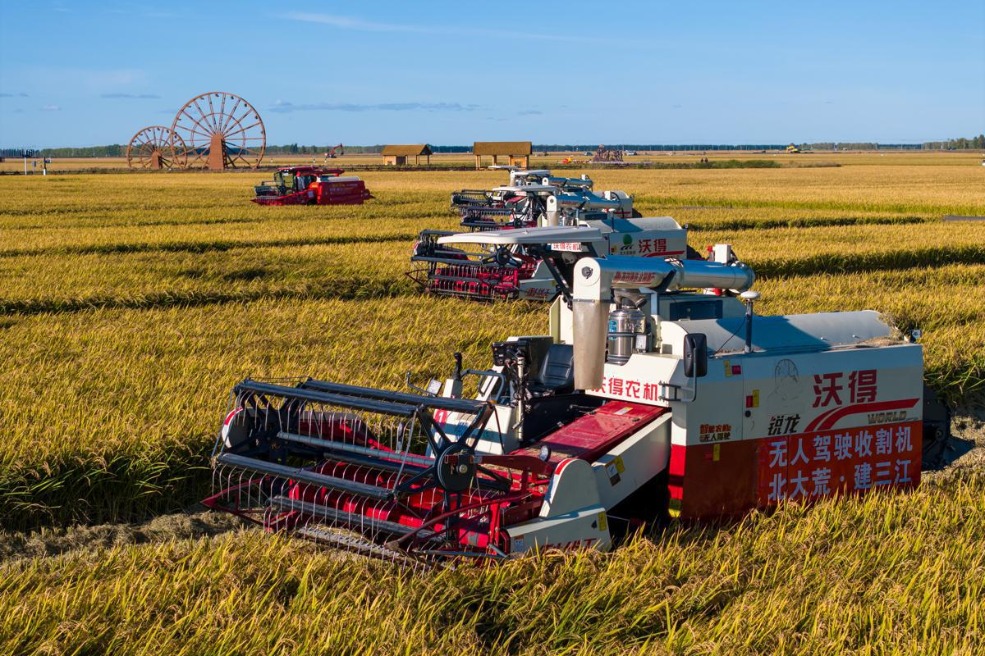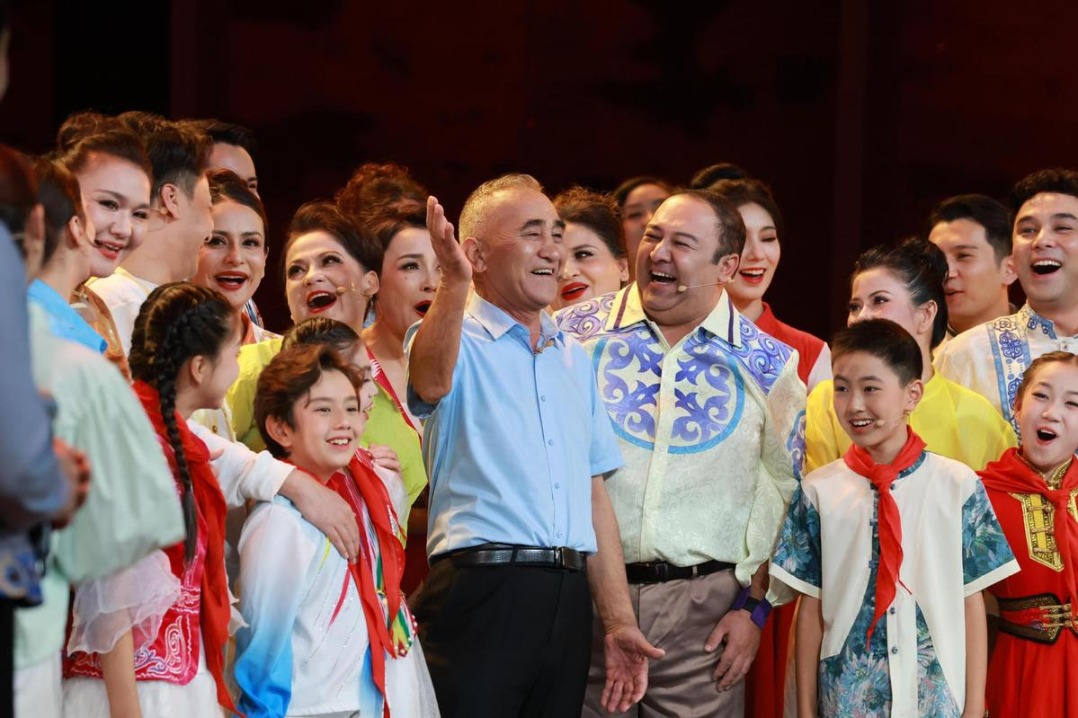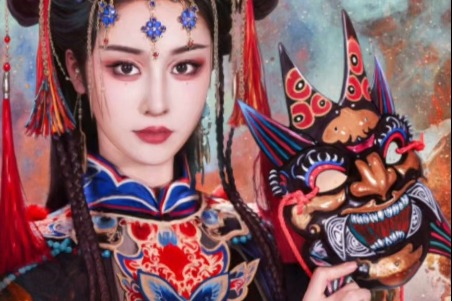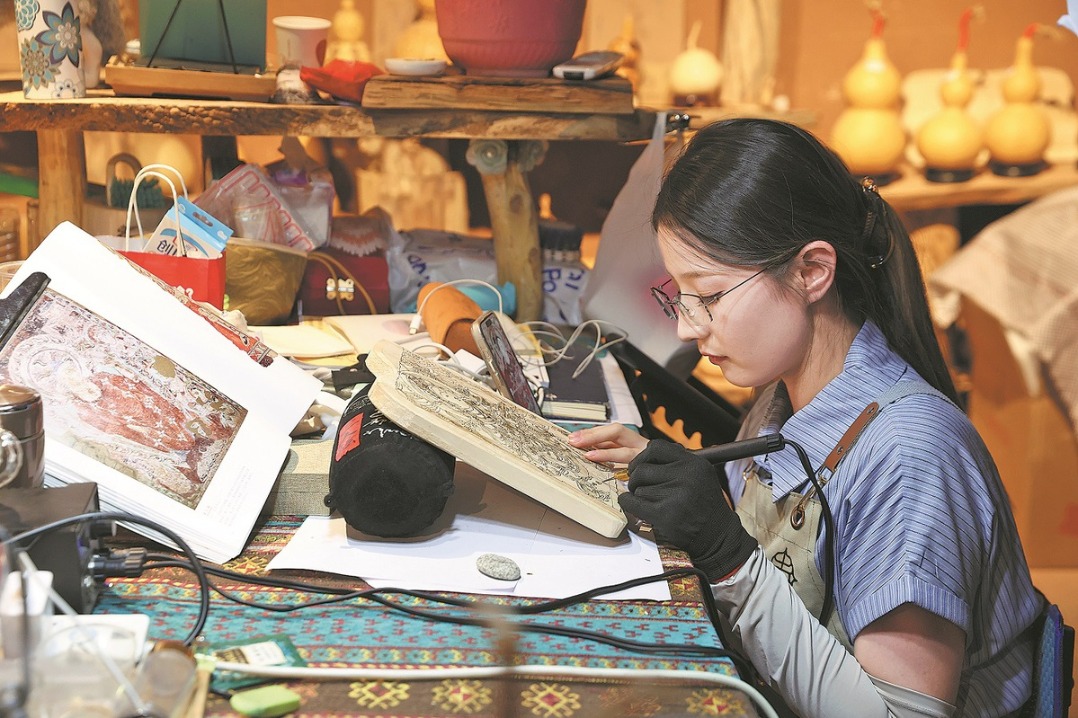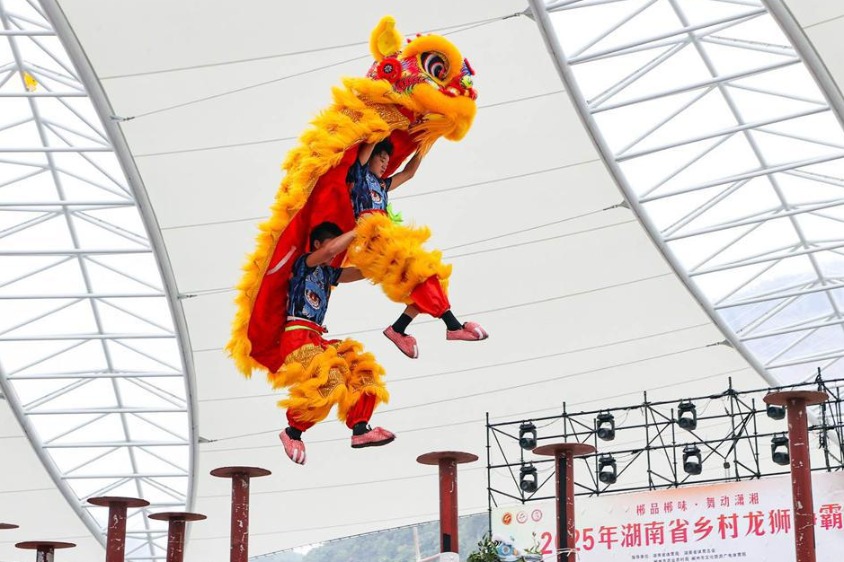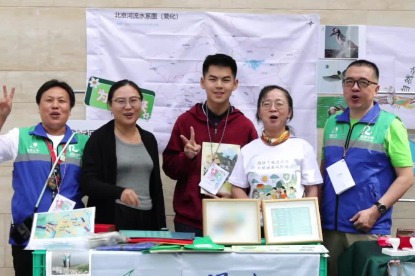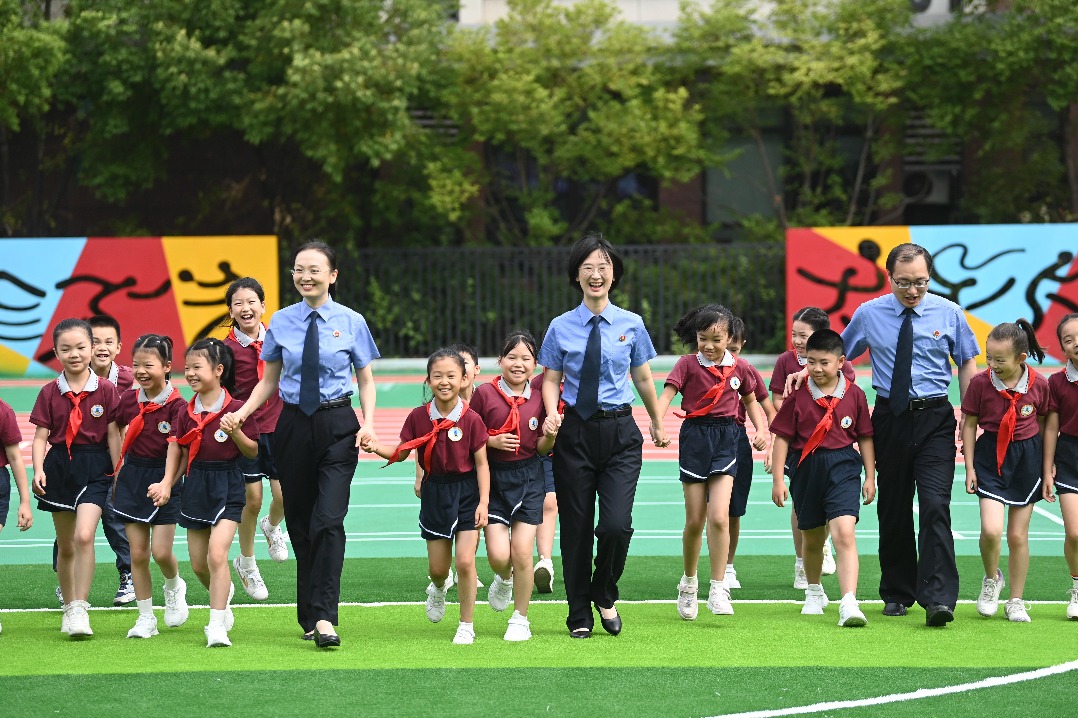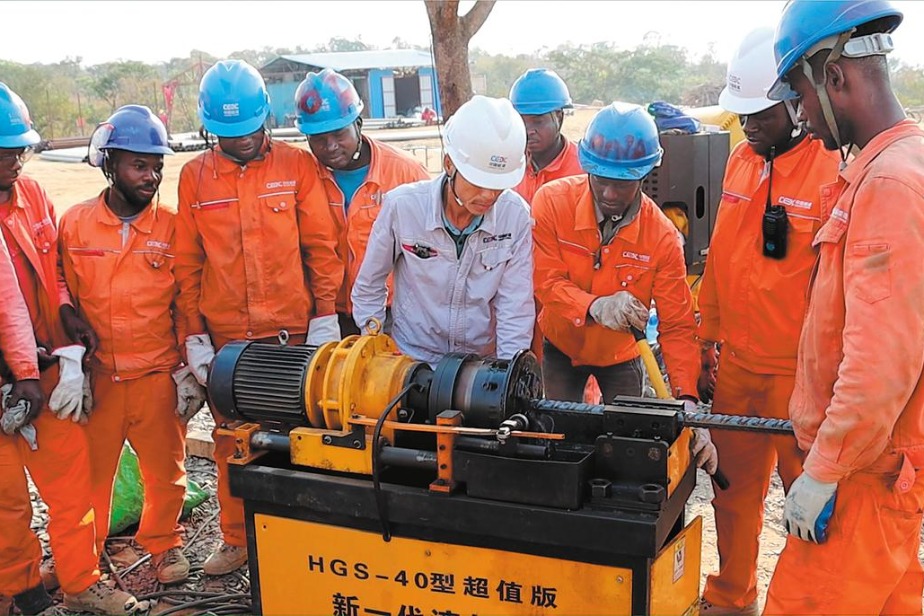Attempts to rewrite history will never tear cultural roots
Lineage between people of Taiwan and Chinese mainland remains unbreakable, will not bend to malicious lies of secessionist forces

Editor's note: The Taiwan question is a key focus for China and the international community. China Daily is publishing a series of reports to track hot Taiwan-related topics and address disinformation from the Democratic Progressive Party administration.

The history of Taiwan's recovery and return to the motherland shows that compatriots on both sides of the Taiwan Strait belong to one community with a shared future. The Chinese mainland and Chinese culture have always been the roots of Taiwan compatriots. Only with deep roots can the branches of a tree flourish.
After coming to power, Lai Ching-te has made no mention of Taiwan's recovery. He brazenly denies the victorious accomplishments in the Chinese People's War of Resistance Against Japanese Aggression (1931-45), including those made by Taiwan compatriots. He has falsified the notions that "The two sides of the Taiwan Strait are not subordinate to each other" and that "The People's Republic of China has no authority to represent Taiwan" by garbling and grafting history.
These fabrications aim to uproot the historical bonds between the two sides of the Strait, and promote a "Taiwan independence" narrative to the harm of the people in Taiwan. This is not only a betrayal of history, but also an insult to the painful memories of the people in Taiwan with regard to colonial rule. It fully exposes the pro-"independence" nature of Lai and the DPP authorities, yet it cannot alter the historical fact that Taiwan is part of China.
Taiwan was ceded to Japan in 1895 as a result of the Qing Dynasty's (1644-1911) defeat in the First Sino-Japanese War (1894-95), and its forced signing of the humiliating Treaty of Shimonoseki under Japanese coercion.
After the outbreak of the Chinese People's War of Resistance Against Japanese Aggression, the Communist Party of China explicitly put forward the proposition of recovering Taiwan, and supported and promoted the Taiwan recovery movement.
Taiwan compatriots have a fine tradition of loving their country and hometowns, and a lofty national spirit. In the struggle against aggression, people on both sides of the Strait further strengthened their shared national spirit and national sentiments, and formed a community sharing weal and woe.
The declaration issued by the Taiwan Revolutionary Alliance upon its establishment in September 1941 stated: "The fate of the motherland is the fate of Taiwan. If the motherland survives, Taiwan survives; if the motherland triumphs, Taiwan is recovered; otherwise, Taiwan is lost."
On Dec 9, 1941, the Chinese government formally declared war on Japan, proclaiming the abrogation of all treaties between China and Japan, including the Treaty of Shimonoseki.
As the main Eastern Theater of the World Anti-Fascist War, China contained and wore out the vast majority of Japan's military, economic and strategic resources, shaping a favorable strategic situation for final victory in the war and for Taiwan's recovery and return to the motherland.
Throughout this process, Taiwan compatriots shared the same destiny with the motherland, and their fight against Japan was an integral part of the whole nation's war of resistance. During the 50 years of Japanese colonial rule, Taiwan compatriots, determined to defend the dignity of the Chinese nation, never ceased resisting, and engaged in both armed and unarmed struggles against Japanese occupation. Their courageous resistance was an indispensable force in achieving Taiwan's recovery and return to the motherland.
Taiwan compatriots further supported the motherland's war of resistance in other ways. More than 50,000 young people from Taiwan returned to the mainland against all odds and joined counter-Japanese aggression groups. Under the banner of the national united front against Japanese aggression advocated by the CPC, compatriots on both sides of the Strait fought side by side, and made important contributions to victory in the war of resistance against Japanese aggression and to Taiwan's recovery.
As victory in the anti-fascist war approached, the leaders of China, the United States and the United Kingdom issued the Cairo Declaration on Dec 1, 1943, which explicitly stated that territories stolen from China by Japan, such as Northeast China, Taiwan and the Penghu Islands, must be restored to China. Under the Cairo Declaration, Taiwan and the Penghu Islands were recognized as "territories Japan has stolen from the Chinese".
On July 26, 1945, China, the US and the UK issued the Potsdam Proclamation, urging Japan to surrender unconditionally. Article 8 of the proclamation explicitly stipulated, "The terms of the Cairo Declaration shall be carried out". On Sept 2 of the same year, Japan signed the instrument of unconditional surrender, accepting all provisions of the Potsdam Proclamation.
From the perspective of international law, the instrument of surrender carried indisputable legal force. These historical documents had great legal significance, as they confirmed the post-war principle that Taiwan's sovereignty belongs to China, provided a solid legal basis for Taiwan's recovery and return to the motherland, and made Taiwan's return an unshakable part of the post-war international order.
Taiwan's recovery and return to the motherland wiped out the historical humiliation the Chinese nation suffered.
Since ancient times, Taiwan has been an indispensable part of China's territory. Lai's claims that "Taiwan has had an independent ecosystem since ancient times", and that Taiwan "is the birthplace of Austronesian culture" have no historical basis and run completely counter to the historical facts of exchanges and interaction between people across the Strait. As early as the Song Dynasty (960-1279) in the mid-12th century, troops had been stationed on the Penghu Islands and the area was under the administration of Jinjiang county, Quanzhou, Fujian province.
Whether during the period of Japanese colonial rule or after Taiwan's recovery and return to the motherland, the cultural ties and shared values rooted in the same origin, language and ethnicity between compatriots on both sides have never changed.
The Japanese colonial authorities' policy of "Japanization" failed to shake the firm commitment of Taiwan compatriots to the Chinese language and culture. They tenaciously upheld the traditions and celebrations of festivals such as Spring Festival, Mid-Autumn Festival and Dragon Boat Festival. This deep sense of identification with Chinese culture is an important reflection of the fact that both sides of the Strait belong to one China, and was a major reason why the people of Taiwan quickly returned to the embrace of Chinese culture after recovery.
As Taiwan's recovery and return to the motherland prove that Taiwan being part of China is an irrefutable fact, the "Taiwan independence" separatist forces and the DPP authorities have seen Taiwan's recovery as a "thorn in the side" and have been keen to tamper with and try to erase this historical fact.
The DPP authorities and the separatist forces on the island have been deliberately downplaying and maliciously distorting the historical facts surrounding Taiwan's recovery. They have extensively deleted content related to Taiwan's recovery from history textbooks or offered distorted interpretations of this part of history, erased the heroic deeds of the people of Taiwan in resisting colonial rule, denied the historical significance of Taiwan's recovery, and attempted to sever the historical ties between Taiwan and the mainland. The DPP authorities have canceled events commemorating anniversaries of Taiwan's recovery, and instead glorified Japan's colonial rule, even going so far as to honor the aggressors who exercised colonial rule over Taiwan.
Likewise, the culture that Japanese colonialists failed to change in 50 years cannot possibly be altered today by the DPP authorities by promoting "cultural Taiwan independence". Compatriots on both sides of the Strait share the same roots, origin, language and ethnicity. No matter how the DPP authorities distort the facts, they cannot change the Chinese cultural genes flowing in the veins of Taiwan compatriots, nor can they alter the deep Chinese cultural roots embedded in Taiwan society.
The author is the director of the Graduate Institute for Taiwan Studies at Xiamen University.
The views don't necessarily represent those of China Daily.
















